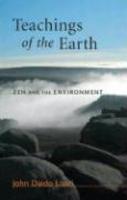
Book Summary
According to Zen teaching, everything in the universe exists interdependently, so valuing the welfare of one being over another, or of humans over the planet, makes no sense at all. This teaching, which can empower us to care passionately about the earth and its future, is not only a Zen principle, it's something that comes up for anyone who carefully investigates the nature of reality. It's a lesson found everywhere we look in nature. And the idea is also found in writings by figures as diverse as Lao Tzu, Walt Whitman, Hermann Hesse, and Henry David Thoreau. John Daido Loori reveals the underlying environmental ethic animating these teachings and shows how it can be a wellspring for our appreciation of the earth in the new millennium. About the Author John Daido Loori (1931-2009) was one of the West's leading Zen masters. He was the founder and spiritual leader of the Mountains and Rivers Order and abbot of Zen Mountain Monastery. His work has been most noted for its unique adaptation of traditional Asian Buddhism into an American context, particularly with regard to the arts, the environment, social action, and the use of modern media as a vehicle of spiritual training and social change. Loori was an award-winning photographer and videographer. His art and wildlife photography formed the core of a unique teaching program that integrated art and wilderness training by cultivating a deep appreciation of the relationship of Zen to our natural environment. He was a dharma heir of the influential Japanese Zen master Taizan Maezumi Roshi and he authored many books.
Book Details
| Book Name | Teachings Of The Earth: Zen And The Environment |
| Author | John Daido Loori |
| Publisher | Shambhala Publications (09/2007) |
| ISBN | 9781590304907 |
| Pages | 105 |
| Language | English |
| Price | 460 |








